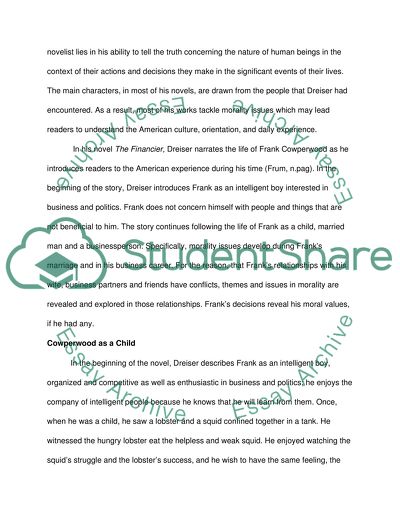Cite this document
(“Morality in Theodore Dreisers The Financier: A Character Analysis of Essay”, n.d.)
Retrieved from https://studentshare.org/literature/1436974-morality-in-theodore-dreisers-the-financier-a-character-analysis-of-frank-cowperwood
Retrieved from https://studentshare.org/literature/1436974-morality-in-theodore-dreisers-the-financier-a-character-analysis-of-frank-cowperwood
(Morality in Theodore Dreisers The Financier: A Character Analysis of Essay)
https://studentshare.org/literature/1436974-morality-in-theodore-dreisers-the-financier-a-character-analysis-of-frank-cowperwood.
https://studentshare.org/literature/1436974-morality-in-theodore-dreisers-the-financier-a-character-analysis-of-frank-cowperwood.
“Morality in Theodore Dreisers The Financier: A Character Analysis of Essay”, n.d. https://studentshare.org/literature/1436974-morality-in-theodore-dreisers-the-financier-a-character-analysis-of-frank-cowperwood.


